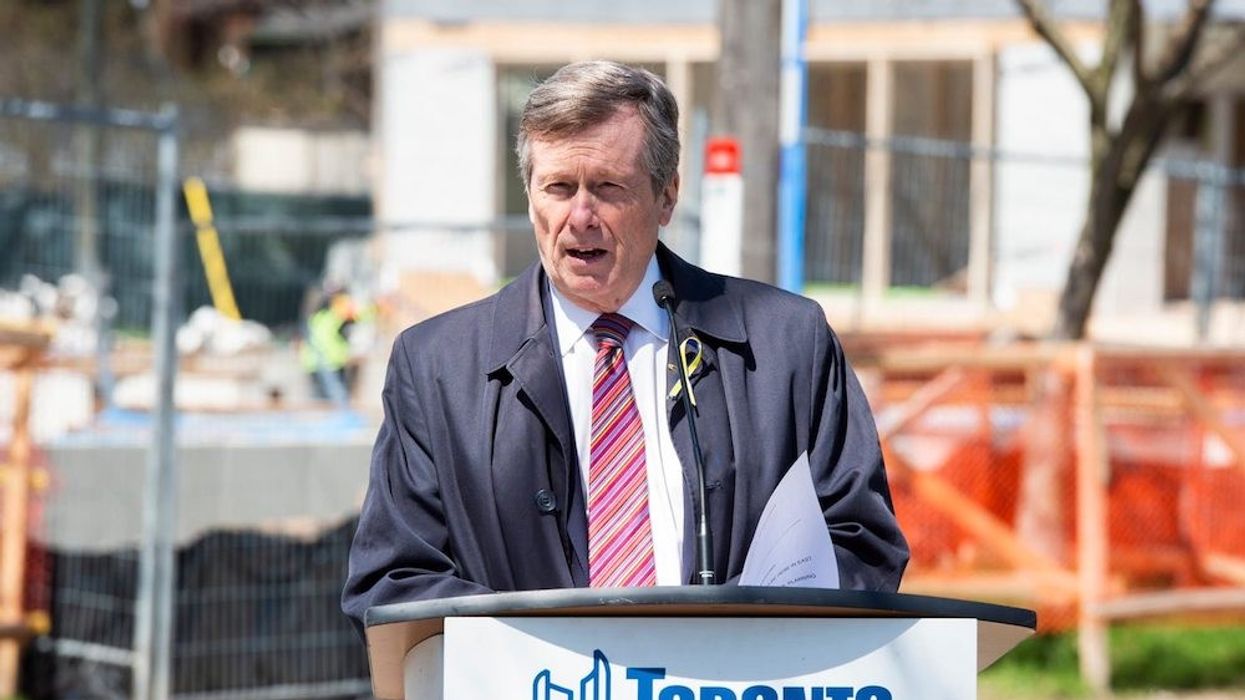John Tory secured a third term as Mayor of Toronto during Monday's municipal election after earning 62% of the vote.
The results came as no surprise, with Tory having long been favoured to win the race. With eight years in office under his belt and another four secured, the win puts Tory in a position to be Toronto's longest-serving Mayor. The current record, held by Art Eggleton, is 11 years.
Of the 31 candidates vying to become the next mayor of Toronto, just two others received more than 2% of the vote. Tory's closest challenger, Gil Penalosa, earned 98,525 votes (17.9%), followed by Chloe-Marie Brown with 34,821 votes (6.3%)
"John Tory has the opportunity in the next four years to make it good for everyone," Penalosa said as he addressed the crowd at his election night event. "Too many people are leaving Toronto because they cannot afford to live here. Teachers, nurses, artists, everybody's living Toronto. We need to be able to retain our people. We need to be able to attract people."
Throughout the campaign, the challengers lambasted Tory's record, particularly when it came to housing. Penalosa, whose platform hinged on the idea of starting a "renovation revolution," critiqued Tory's inability to legalize rooming houses and get more new homes built. Brown, during the October 17 mayoral debate, similarly called Tory out for inaction, saying that his housing plan was "collecting dust." Candidate Stephen Punwasi made jabs in the same vein, asking Tory why he hadn't accomplished any parts of his enticing housing platform over the past eight years.
Tory's platform, released in August, laid out a five-point plan to tackle Toronto's housing affordability crisis with an emphasis on getting homes built faster. He also vowed to "streamline and modernize processes at City Hall," and "incentivize homebuilding partners to increase our housing supply and drive affordability."
Tory's plan for his next term includes:
- Receiving authority from the province to put a “use it or lose it” policy into place for developers, to prevent them from delaying building on land approved for development;
- Allowing more missing middle housing -- including the newly legalized garden suites as well as laneway housing, and exempting new developments with four units or less from development charges;
- The creation of a city Development and Growth Division;
- Improved incentives for the creation of purpose-built rental housing, such as lowering fees and development charges;
- And granting a portion of city-owned land to non-profit developers, in efforts to create more co-op and supportive housing options.
Richard Lyall, President of RESCON, Ontario's leading association of residential builders, hailed Tory's win as a good sign for housing the in city.
"The housing challenges facing Toronto are complex and difficult," Lyall told STOREYS. "In my view, the city does need a steady experienced hand and Mayor Tory was the only candidate that fit the bill. It is also important that he understands and can deal with the senior levels of government. Because the solutions must involve and engage all levels of government given, amongst other things, the unique role Toronto and the GTA plays as the economic centre of the country."
During the new council term, scheduled to begin in November, Tory will be joined by a number of newly elected city councillors, including Ausma Malik who won Ward 10 Spadina-Fort York after Councillor Joe Cressy announced he was retiring from electoral politics. Jamaal Myers will take over for Councillor Cynthia Lai in Ward 23, Scarborough North, following Lai's death just days before the election.





















